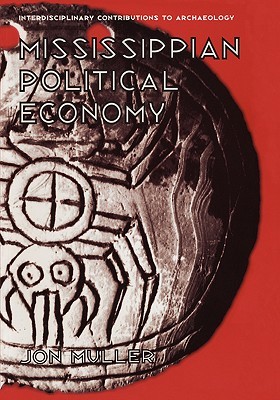
- We will send in 10–14 business days.
- Author: Jon Muller
- Publisher: Springer
- ISBN-10: 0306456753
- ISBN-13: 9780306456756
- Format: 15.7 x 25.4 x 2.3 cm, minkšti viršeliai
- Language: English
- SAVE -10% with code: EXTRA
Reviews
Description
This book is written from a particular theoretical and practical postnon. The first chapter outlines some of these issues, but a few issues requireemphasis. The first is what is meant by "political economy. " The concept of political econ- omy used here derives from common economic and social science usage. Sometimes, however, a few individuals seem to consider political economy to consist only of power relationships, especially in regard to distribution and consumption, often excluding or ignoring social reproduction or production. Although power and its uses are important issues, this is a very incomplete view of political economy from my perspective, one that ignores arguably eentral issues. Another issue is that of historieal eomparisons. Some of the ehapters that follow have mueh historieal data. The historical eomparisons are not the point of this volume, however. Testing of historieal "models" is important, but the reader should not be distraeted by them. I have long preaehed against misuse of historieal analogy. I do argue that the historie and prehistorie Southeastem societies have been misunderstood so as to make an artifieial gap between them, but this is a seeondary issue. In any ease, the thesis of similarity is being tested against empirieal evidenee. The historieal data are absolutely not being used to interpret the prehistorie data.
EXTRA 10 % discount with code: EXTRA
The promotion ends in 24d.01:09:39
The discount code is valid when purchasing from 10 €. Discounts do not stack.
- Author: Jon Muller
- Publisher: Springer
- ISBN-10: 0306456753
- ISBN-13: 9780306456756
- Format: 15.7 x 25.4 x 2.3 cm, minkšti viršeliai
- Language: English English
This book is written from a particular theoretical and practical postnon. The first chapter outlines some of these issues, but a few issues requireemphasis. The first is what is meant by "political economy. " The concept of political econ- omy used here derives from common economic and social science usage. Sometimes, however, a few individuals seem to consider political economy to consist only of power relationships, especially in regard to distribution and consumption, often excluding or ignoring social reproduction or production. Although power and its uses are important issues, this is a very incomplete view of political economy from my perspective, one that ignores arguably eentral issues. Another issue is that of historieal eomparisons. Some of the ehapters that follow have mueh historieal data. The historical eomparisons are not the point of this volume, however. Testing of historieal "models" is important, but the reader should not be distraeted by them. I have long preaehed against misuse of historieal analogy. I do argue that the historie and prehistorie Southeastem societies have been misunderstood so as to make an artifieial gap between them, but this is a seeondary issue. In any ease, the thesis of similarity is being tested against empirieal evidenee. The historieal data are absolutely not being used to interpret the prehistorie data.


Reviews